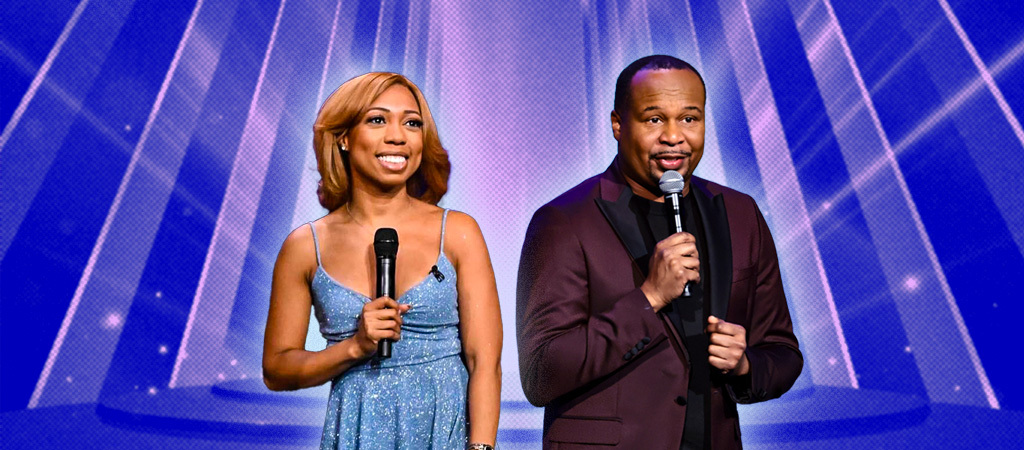
College campuses are often celebrated for crafting some of the brightest minds of the future. But that’s not restricted to purely academic pursuits. Many of today’s most notable entertainers paid their dues by finding and honing their voices at the local college level.
When it comes to historically Black colleges and universities (HBCUs), the bonds of community can keep alumni connected to their alma maters deep into their successful careers. Comedians like Roy Wood Jr., Brandi Denise, and Melanie Mitchell, for example, are known to represent and give back to the community whenever possible. And the community greatly appreciates their efforts.
“The HBCU community offers support. They want you to win and want you in spaces where they can help you win,” said Jasmin Leigh, a fellow FAMU alumna and comedian. “HBCU culture, specifically FAMU, my HBCU, wants you to succeed, and it brings them joy to be the one to help you.”
Performing at HBCUs also allows comedians to gain valuable experience with the intersection of Black audiences and younger audiences, who are often directly responsible for determining whether or not someone has staying power in music, comedy, fashion, and other areas. Leigh even argues that a college-educated Black audience is “the hardest to get to laugh; low-hanging fruit does not work, so you have to make sure your jokes mean something.”
In other words, if you can make it in a room of HBCU students, you can make it anywhere. This is why it’s critically important to create and maintain spaces where comedians, both established and those just starting, can experience that intersection for themselves. Thankfully, events like the Howard Homecoming Comedy Jam, which occurred for the first time since the COVID-19 pandemic this past October, offer these opportunities.
Del Sterling, a Howard University alumnus himself, played a significant role in bringing the show back to his alma mater to kick off the school’s centennial homecoming celebration.
“The experience of going to a comedy show live” was Sterling’s first thought when asked about the benefits of bringing the show back to campus. “A number of students said that they have never been to a comedy show.”
This is different than Sterling’s time at Howard, affectionately called “The Mecca” by alumni, who remembers watching Katt Williams’ breakout The Pimp Chronicles Part 1 premiering on campus and witnessing a young Anthony Anderson take his own comedy seriously before the world even knew who he was.
This year’s event was slightly different than usual, though, with a game show format featuring only performers with an HBCU affiliation. Sterling plans on bringing a similar show back to Howard for Spring Fest 2025 and again for next year’s Homecoming with hopes of touring to different HBCU campuses in the future.
Staying connected to their HBCU roots can also help comedians recharge their creative batteries if they’re ever in a rut or need some added inspiration.
“Recently, I went to homecoming, and after being in a creative funk for almost a year, I felt refreshed strutting through FAMU’s campus,” Leigh said. “Seeing my FAMUly, being encouraged and celebrated by the things I have already accomplished, I just don’t hear the same experiences from friends who went to PWIs.”
For the uninitiated, PWI is a term that stands for “predominantly white institutions,” which is mainly used when they’re juxtaposed against HBCUs. To be fair, performers from a wide variety of backgrounds find their footing at PWIs, but HBCU alumni generally wear their alma mater as a badge of honor and carry it in all that they do.
“Although I love my school, I have to say that when I converse with others who went to an HBCU, they have a similar (never the same) experience,” said Leigh. “Being in a place where you can be yourself does something different for your self-esteem. Being celebrated in Black spaces is top tier; nothing compares.”
